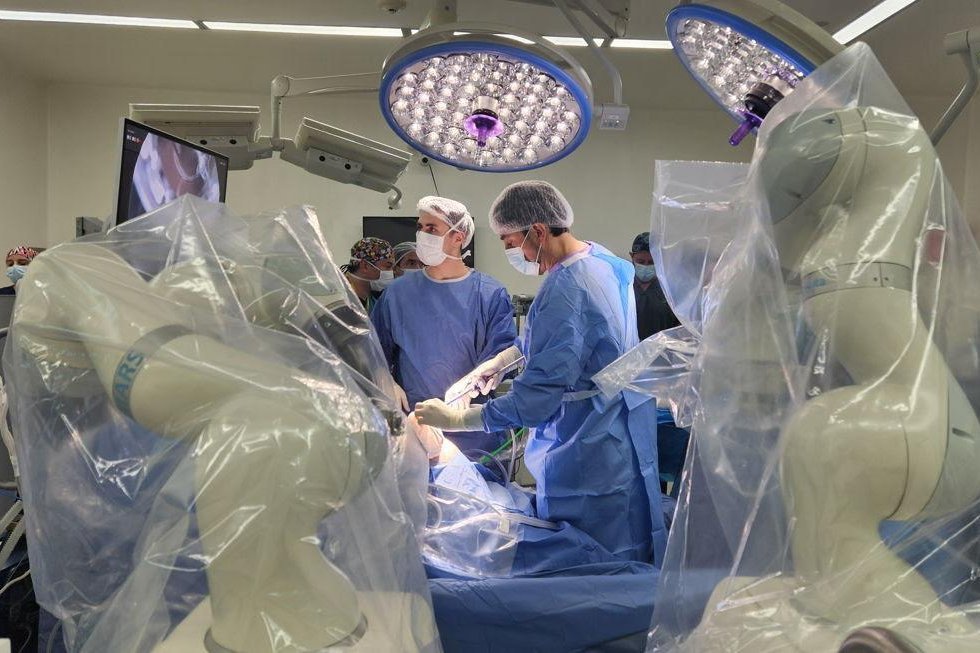AI Research
FuriosaAI Raises $125M In Series C As LG AI Research Backs Renegade Inference Chip Breakthrough – NVIDIA (NASDAQ:NVDA), Taiwan Semiconductor (NYSE:TSM)

FuriosaAI has just taken a decisive step toward a new era of sustainable AI compute with a $125 million Series C bridge raise, while LG AI Research simultaneously endorsed its RNGD, chip through a major enterprise design win.
FuriosaAI’s bridge funding round is aimed at scaling mass production of its next‑generation RNGD – pronounced “Renegade” – inference accelerator, a milestone that brings total funding to about $246 million and values the company at roughly $735 million. Backers of this round include Korea Development Bank, Industrial Bank of Korea, Keistone Partners and Kakao Investment.
Don’t Miss:
Trending Investment Opportunities
LG AI Research Backs RNGD After Tests Validate 2.25 Times Efficiency Leap
FuriosaAI secured a major enterprise design win when LG AI Research selected RNGD for deployment with its ExaOne models, FuriosaAI says. Benchmark results show RNGD delivers 2.25 times better large language model inference performance per watt versus legacy graphics processing unit hardware.
“After extensively testing a wide range of options, we found RNGD to be a highly effective solution for deploying ExaOne models,” LG’s product lead, Kijeong Jeon, said in a statement. “RNGD provides a compelling combination of benefits: excellent real‑world performance, a dramatic reduction in our total cost of ownership, and a surprisingly straightforward integration.”
Radical Efficiency From First‑Principles Design
Founded in 2017, FuriosaAI built its chips and software from the ground up with a first‑principles approach aimed at solving the power and cost limitations of GPUs.
“AI today is dependent on a broken business model, where the infrastructure costs and constraints of power-hungry GPUs are a critical, rapidly worsening roadblock. We’re committed to solving this so that AI is truly sustainable – not just environmentally but economically as well,” FuriosaAI CEO June Paik said in the statement.
Trending: Accredited Investors: Grab Pre-IPO Shares of the AI Company Powering Hasbro, Sephora & MGM—Secure $0.63 Shares Before 8/14
According to FuriosaAI, the RNGD accelerator is based on the company’s proprietary tensor contraction processor architecture, optimized for tensor-heavy LLM workloads on Taiwan Semiconductor Manufacturing Company’s TSM 5-nanometer node.
The newly secured capital will be used to expand global manufacturing of RNGD hardware, onboard enterprise clients, and lay the foundation for a next-generation AI chip release, the company says.
FuriosaAI also recently strengthened its leadership by adding two industry veterans to its team: Jeehoon Kang as chief research officer and Youngjin Cho as vice president of the hardware department.
“With the success of Furiosa’s RNGD chip and the significant design win with LG AI Research, June and his leadership team have demonstrated their ability to deliver on their audacious vision for transforming AI computing. We are thrilled to deepen our partnership as they enter their next phase of growth,” PI Partners CEO Yoon D. Kang said in the statement.
See Also: Warren Buffett once said, “If you don’t find a way to make money while you sleep, you will work until you die.” Here’s how you can earn passive income with just $10.
Efficiency, Sovereignty, and a New AI Compute Paradigm
Data centers and enterprises are reaching breaking points with the soaring energy costs and carbon impact of GPU‑based infrastructure. FuriosaAI’s RNGD accelerator delivers a new approach: inference hardware that combines higher performance per watt with a lower total cost of ownership.
For investors, FuriosaAI’s combination of validated architecture, $125 million in fresh capital, and a collaboration with LG AI Research may be a rare chance to back a company challenging Nvidia’s NVDA dominance in AI inference hardware.
Read Next: Are you rich? Here’s what Americans think you need to be considered wealthy.
Image: Shutterstock
AI Research
When you call Donatos, you might be talking to AI

If you call Donatos Pizza to place an order, you might be speaking with artificial intelligence.
The Columbus-based pizza chain announced that it has completed a systemwide rollout of voice-ordering technology powered by Revmo AI. The company says the system is now live at all 174 Donatos locations and has already handled more than 301,000 calls since June.
Donatos Reports Higher Order Accuracy, More Efficient Operations
According to Donatos, the AI system has converted 71% of calls into orders, up from 58% before the rollout, and has achieved 99.9% order accuracy. The company also says the switch freed up nearly 5,000 hours of staff time in August alone, allowing employees to focus more on preparing food and serving in-store customers.
“Our focus was simple: deliver a better guest experience on the phone and increase order conversions,” Kevin King, President of Donatos Pizza, said in a statement.
Ben Smith, Donatos’ Director of Operations Development, said the change provided immediate relief on the phones, allowing staff to redirect time to order accuracy and hospitality.
Donatos said it plans to expand the system to handle more types of calls and to make greater use of its centralized answering center. The company did not say whether it plans to reduce call center staffing or rely more heavily on automation in the future.
Other chains report trouble with AI ordering systems
Taco Bell recently started re-evaluating its used of AI to take orders in the drive-thru after viral videos exposed its flaws. In one well-known video, a man crashed the system by ordering 18,000 cups of water. The company is now looking at how AI can help during busy times and when it’s appropriate for a human employee to step in and take the order.
Last year, McDonald’s ended its AI test in 100 restaurants after similar problems surfaced. In one case, AI added bacon to a customer’s ice cream. A McDonald’s executive told the BBC that artificial intelligence will still be part of the chain’s future.
AI Research
First gallbladder surgery performed with help of AI-guided robot

The first autonomous surgery guided by artificial intelligence is performed in Chile. Photo courtesy of Levita Magnetics
SANTIAGO, Chile, Sept. 12 (UPI) — Surgeons in Chile performed a pioneering gallbladder operation with the support of the MARS platform, a system that combines precision robotic technology with artificial intelligence.
For the surgery performed on Monday, a robot held a magnet that moves instruments inside the patient with one of its arms, while the other arm carried an autonomous surgical camera guided by AI.
The camera automatically zooms in and out and follows the surgeon’s movements, giving the medical team a clearer, uninterrupted view throughout the procedure without manual adjustments.
Normally, these types of surgeries require an assistant to adjust the camera at the surgeon’s request. MARS advanced on that model by allowing the surgeon to control the camera directly with hand or foot movements.
“It’s not that we didn’t already have a good view of what we were doing, but this is an added advantage. The camera follows the surgeon’s movements and can also be stopped and controlled manually, but it is trained to work autonomously, Dr. Ricardo Funke, head of surgery at Clínica Las Condes, who led the procedure, told UPI.
“This allows us to maintain a stable, high-quality view and to see with great precision what we’re doing during the operation.”
He added: “This is the first case in the world in which we have used artificial intelligence technology that is proven and safe for patients. Years ago, it was unthinkable that AI could be part of our daily work, and it is an area that will continue to advance.”
Dr. Matías Sepúlveda, president of the Chilean Society of Bariatric and Metabolic Surgery and a digestive surgeon at the private Clínica Las Condes, said the new technique avoids making additional incisions in an operation that is already minimally invasive.
With these advances, the goal is to have a positive impact on patients.
“That means less pain, faster recovery and lower costs for health institutions by reducing the number of assistants or surgeons needed during the operation. This is only the beginning, but it will have a major impact on what we do,” said added.
The technology was developed by Levita Magnetics, a Chilean medical startup based in Mountain View, Calif., that specializes in minimally invasive solutions for assisted surgery and magnetic technology.
In 2023, the company received authorization from the U.S. Food and Drug Administration for its MARS platform to be used in abdominal surgeries such as gastric sleeve procedures. In June, its use was expanded to bariatric repairs and hernia surgeries, which are among the most common procedures.
“We decided to perform the surgery in Chile because it is our base of operations. This is the first surgery of its kind, and our goal is to expand the use of AI everywhere our MARS robot is available, in both Chile and the United States,” Dr. Alberto Rodríguez, founder of Levita Magnetics, told UPI.
He added that this milestone is only the beginning of surgical autonomy. “Robots, which embody AI, will take on an increasingly important role in different stages of operations, allowing for safer procedures, more efficient surgeons and, ultimately, better outcomes for patients.”
AI Research
NSF Launches Effort to Establish National AI Research Operations Center
The U.S. National Science Foundation (NSF) has announced a solicitation to establish a National Artificial Intelligence Research Resource Operations Center (NAIRR-OC), a move aimed at transitioning the National AI Research Resource (NAIRR) from its pilot phase to a sustainable national program.
Launched in 2024 as a public-private partnership, the NAIRR pilot provides researchers with access to advanced computational, data, model, and training resources. Despite rapid AI progress, many researchers and educators still lack the tools needed to explore fundamental AI questions and train students effectively.
So far, the pilot has connected more than 400 research teams with computing platforms, datasets, software, and models, driving innovation across agriculture, drug discovery, cybersecurity, and education. Backed by 14 federal agencies and 28 industry and nonprofit partners, it has accelerated U.S. leadership in responsible AI development.
“We look forward to continued collaboration with private sector and agency partners, whose contributions have been critical in demonstrating the innovation and scientific impact that comes when critical AI resources are made accessible to research and education communities across the country,” Katie Antypas, director of the NSF Office of Advanced Cyberinfrastructure, said.
The new operations center will expand these capabilities by creating a centralized framework for governance, integrating advanced computing and data resources, and launching a web portal for streamlined access. It also aims to strengthen outreach and collaboration within the AI research community.
-

 Business2 weeks ago
Business2 weeks agoThe Guardian view on Trump and the Fed: independence is no substitute for accountability | Editorial
-
Tools & Platforms1 month ago
Building Trust in Military AI Starts with Opening the Black Box – War on the Rocks
-

 Ethics & Policy2 months ago
Ethics & Policy2 months agoSDAIA Supports Saudi Arabia’s Leadership in Shaping Global AI Ethics, Policy, and Research – وكالة الأنباء السعودية
-

 Events & Conferences4 months ago
Events & Conferences4 months agoJourney to 1000 models: Scaling Instagram’s recommendation system
-

 Jobs & Careers2 months ago
Jobs & Careers2 months agoMumbai-based Perplexity Alternative Has 60k+ Users Without Funding
-

 Podcasts & Talks2 months ago
Podcasts & Talks2 months agoHappy 4th of July! 🎆 Made with Veo 3 in Gemini
-

 Education2 months ago
Education2 months agoVEX Robotics launches AI-powered classroom robotics system
-

 Education2 months ago
Education2 months agoMacron says UK and France have duty to tackle illegal migration ‘with humanity, solidarity and firmness’ – UK politics live | Politics
-

 Funding & Business2 months ago
Funding & Business2 months agoKayak and Expedia race to build AI travel agents that turn social posts into itineraries
-

 Podcasts & Talks2 months ago
Podcasts & Talks2 months agoOpenAI 🤝 @teamganassi





















